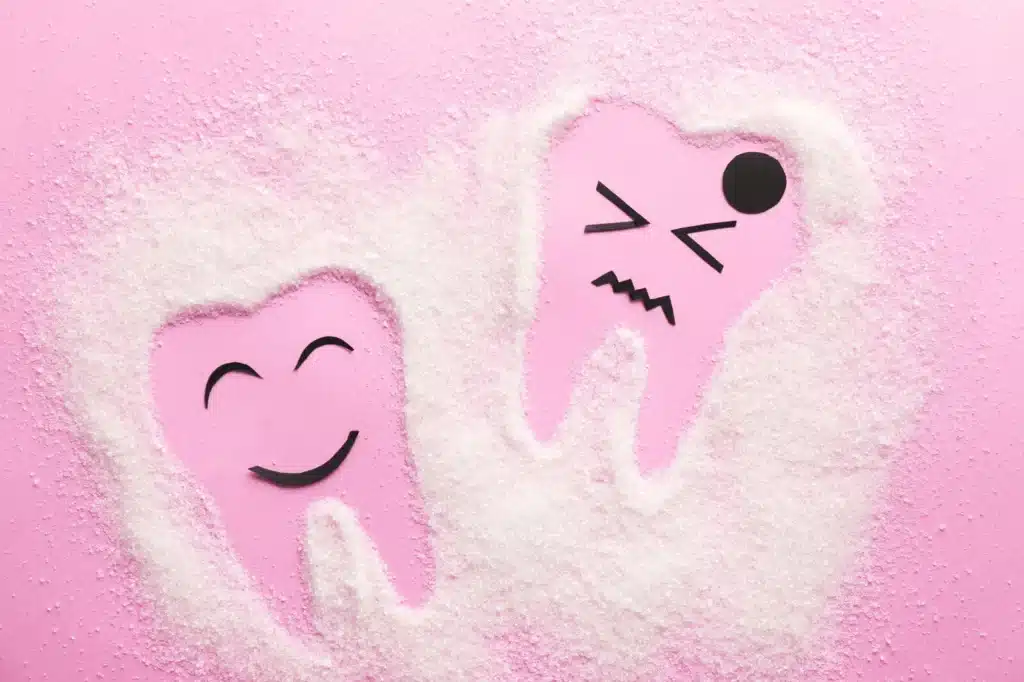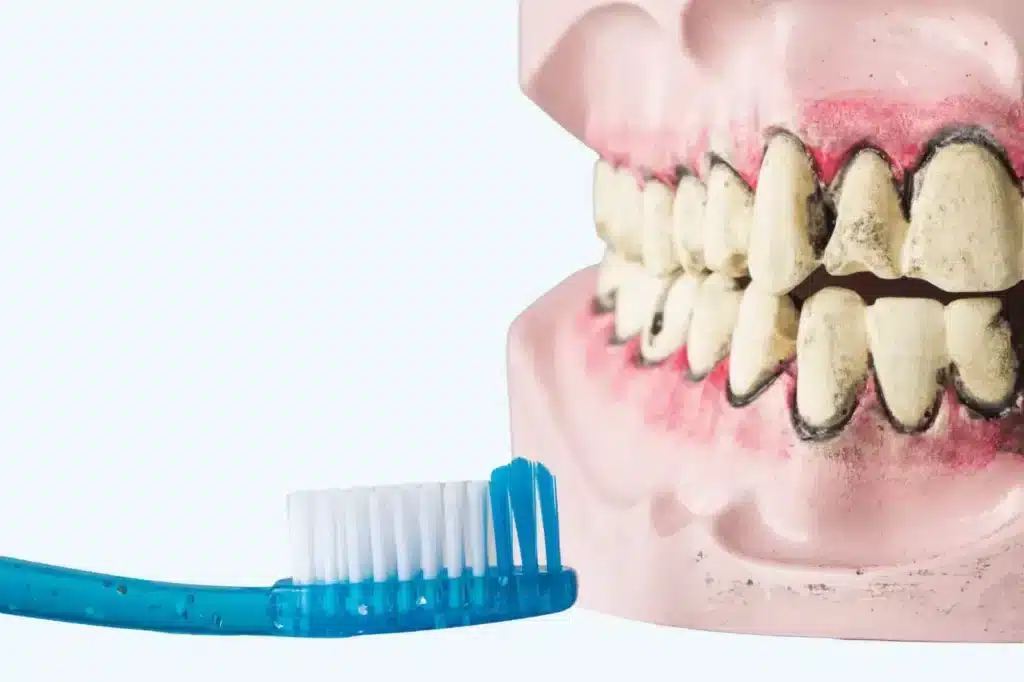Alcohol consumption causes dry mouth and many severe oral health problems. Read to know the impact of alcohol on oral health.
Consuming moderate amounts of alcohol is part of the lifestyle, but it is not considered healthy. Drinking too much alcohol damages your health. Let’s explore the impact of alcohol on oral health.
Impact of Alcohol on Oral Health
The impact of alcohol on oral health is dangerous. It can lead to many oral diseases. Read more to know.
Alcohol and Dry Mouth
One immediate impact of alcohol on oral health is dry mouth, known as xerostomia. Alcohol is a diuretic, making the body produce more urine and causing dehydration. This dehydration produces less saliva, resulting in a dry mouth that many people feel after drinking.
Additionally, alcohol can irritate mouth and throat tissues, causing inflammation and further reducing saliva, leading to symptoms like a dry or sticky mouth, difficulty swallowing, and a sore throat.
Alcohol and Tooth Decay
When saliva decreases, it doesn’t wash away as much bacteria from your teeth’s outer layer (enamel), which is why the impact of alcohol on oral health can lead to tooth cavities.
Alcohol turns into sugar during metabolism, attracting cavity-causing bacteria to the enamel. Many drinks, like cocktails and alcopops, have sugary mixers that stick to your teeth, leading to decay over time. Beer, red wine, white wine, and cider also contain acid that slowly dissolves enamel, causing sensitivity or pain.
People struggling with alcohol dependence face a higher risk of tooth decay and loss. Due to increased plaque, heavy drinkers are three times more likely to lose teeth permanently.

Alcohol and Gum Disease
Drinking heavily can weaken the immune system, making it more challenging to fight infections like gum disease, also known as periodontitis.
Periodontitis, a common long-term effect of alcohol on the mouth, shows itself through bleeding gums, plaque, gum recession, infections, and pockets forming where gums pull away from teeth. Gum disease is linked to higher risks of cancer, diabetes, stroke, and heart disease.
A study in 2015 highlighted the impact of alcohol on oral health. It involved 542 nondrinkers, occasional drinkers, and regular users, with and without periodontitis, and found:
- Regular alcohol users without gum disease had more gum bleeding than nondrinkers.
- Alcohol users with existing gum disease saw their condition worsen with more frequent drinking.
- Drinkers without gum disease had more plaque than nondrinkers.
- Alcohol users without gum disease had larger pockets between their gums and teeth more often than nondrinkers. (Healthy gums have pockets measuring 1 to 3 millimeters.)

The study showed that even in people without gum disease, alcohol has a proportional and negative impact on gum health in various ways.
Staining
Staining or discoloration of teeth is also an impact of alcohol on oral health. The color in drinks, caused by chromogens, attaches to enamel compromised by alcohol’s acid, staining teeth. Drinking with a straw can help avoid this.
Dark sodas and red wine can stain teeth. It is advised to rinse with water between drinks.
How to Minimize Alcohol Consumption?
According to the Centers for Disease Control and Prevention, moderate alcohol intake is one drink per day for women and up to two drinks a day for men, with one drink equivalent to 14 grams (0.6 fl oz.) of pure alcohol in a single day.
If you enjoy alcohol, it’s recommended to sip water between drinks to counteract dehydration. After drinking alcohol or any sugary beverage, remember to brush, floss, and use mouthwash.
While moderate alcohol consumption typically doesn’t lead to health issues, it’s crucial for those dependent on alcohol to seek help due to potential negative impacts on oral health. Alcoholism can result in dry mouth, tooth decay, gum disease, chronic bad breath, and a higher risk of oral cancer.
Conclusion
The impact of alcohol on oral health causes severe complications. Avoid consuming too many acidic drinks and beverages to protect your enamel and teeth.


